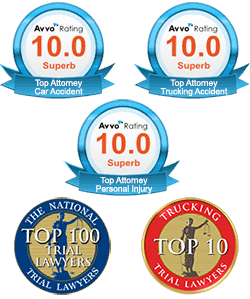 The Federal Motor Carrier Safety Administration (FMCSA) has decided not to use a new method developed by academics to measure the safety of motor carriers. The regulatory agency instead wants to update its current Safety Measurement System (SMS).
The Federal Motor Carrier Safety Administration (FMCSA) has decided not to use a new method developed by academics to measure the safety of motor carriers. The regulatory agency instead wants to update its current Safety Measurement System (SMS).
The existing SMS analyzes data from crash reports and roadside inspections to assess whether a motor carrier or commercial driver needs safety interventions. It is the main assessment tool in the FMCSA’s Compliance, Safety, Accountability program, which aims to prevent commercial vehicle crashes, crash injuries, and crash fatalities.
In 2017, the National Academy of Sciences unveiled a new measuring method called the Item Response Theory (IRT) model. The academic panel believed it to be better than the current SMS because the IRT is “a more statistically principled approach” and supported by empirical studies.
But, after six years of evaluation, the FMCSA announced that the IRT model “revealed many limitations and practical challenges.” Among these challenges, according to the agency, was that the IRT model would not be readily understandable by truckers and the general public.
“While SMS results can be reproduced and explained using simple math, IRT requires an advanced understanding of statistical modeling and analysis,” the agency stated.
The agency did, however, identify several changes to implement within its current SMS. Among these are improving the categories of safety violations and adjusting the Intervention Thresholds (the safety score levels at which carriers would need interventions).
Industry experts are divided on the FMCSA’s rejection of the new proposed system.
Sean Garney, a transportation consulting executive, said that while the “IRT showed promise,” it also “requires a lot of data, some of which FMCSA couldn’t get.”
“Plus, it’s extremely difficult to understand. We already have challenges describing CSA,” he added.
Meanwhile, Steven Bryan, CEO of a carrier reputation management company, praised the IRT model. He believed that “certain people at FMCSA didn’t understand the science behind IRT. So they just didn’t think they could explain it to the truckers.”
Bryan stressed that the IRT is similar to IQ scoring and credit scoring in that most people don’t need to understand how they’re calculated.
“Nobody explains to a person how they compute their IQ score. They just trust it because it’s good science.”
Contact an Experienced Truck Crash Lawyer in Kansas City
As public agencies continue to develop and refine programs for motorist safety, numerous trucking violations are discovered year after year. Many of these violations lead to catastrophic accidents, injuring or killing innocent commuters.
If you’ve been injured or lost a loved one in a Kansas City truck accident, get experienced legal help from Flick Law Firm. Consult for free. Call (816) 221-0501 to schedule your consultation.




